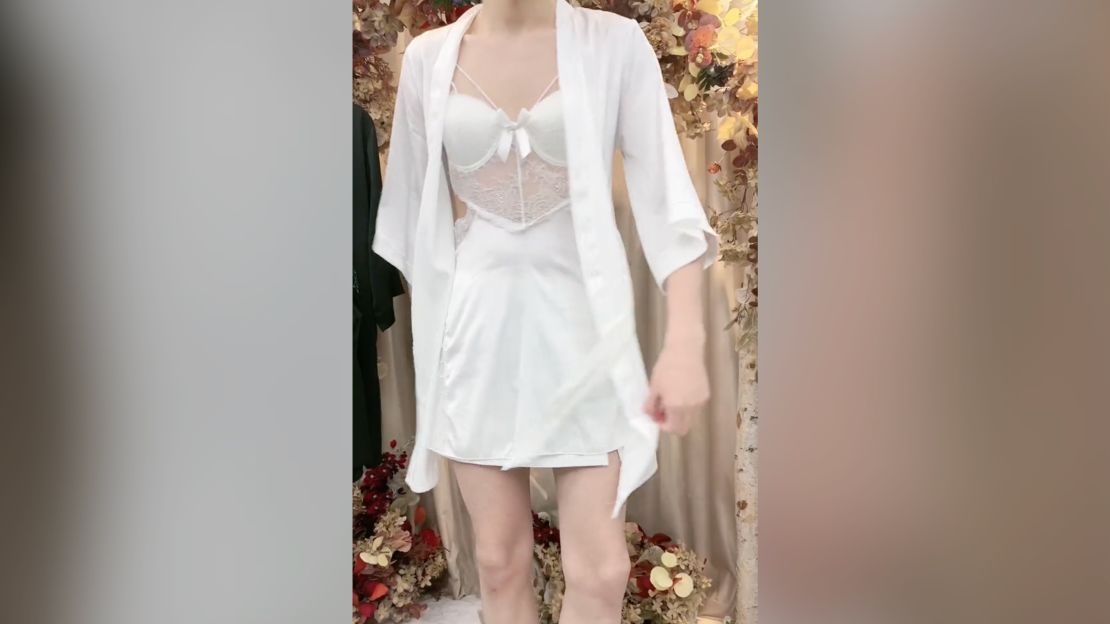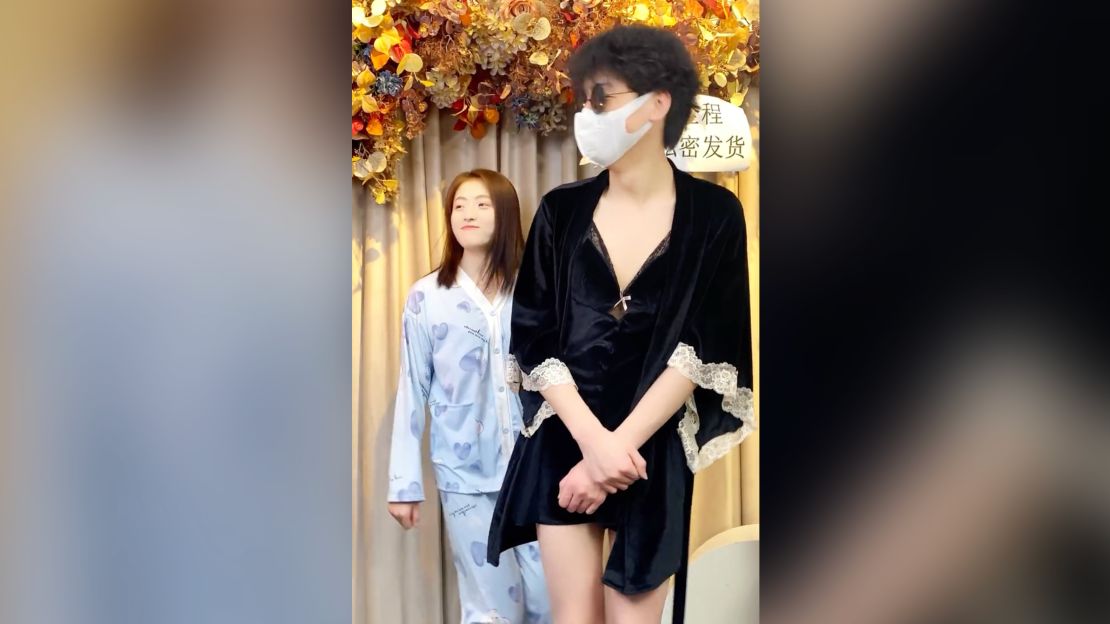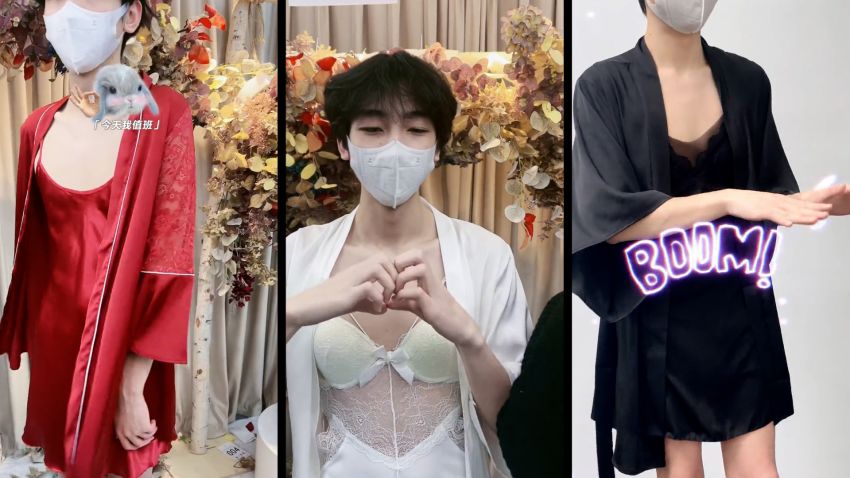Donning a sassy piece of silk lingerie, a male model grooves to the beat and forms a heart shape with his fingers during a livestreaming session on Douyin, one of China’s most popular video-sharing platforms.
His modeling performance is the latest illustration of the kind of entrepreneurial innovation sometimes needed to bypass China’s rigorous internet censorship, a dragnet that can ensnare seemingly innocuous activities – in this case retailers selling women’s underwear online.
China deploys one of the world’s most stringent censorship regimes, with a track record of blocking out not just politically sensitive information but images of women’s bodies deemed marginally racy.
Several businesses specializing in selling lingerie through livestreaming have had their sessions cut short after they featured a female model and their brush with internet censorship came to light in January.
Hence the use of men instead.
On one of the sales channels, a man is seen dressed in black lingerie, standing next to a mannequin showing a similar outfit, in what appears to be a screenshot of a livestream broadcast on Alibaba (BABA)’s Taobao Live, a streaming platform for the e-commerce giant.
In another image, a different male model put on a pink slip dress and silky shawl, accessorized with cat ear headbands.

In one livestream clip, carried by multiple state media outlets, an owner of an online venture said he was simply trying to play it safe.
“This is not an attempt at sarcasm. Everyone is being very serious about complying with the rules,” the man, who identified himself as Mr Xu, said.
The emergence of male lingerie models has caused mixed views online in China, from merriment and annoyance to reluctant acceptance.
“So what should I do if I want to promote and showcase lingerie in the live broadcast session? It’s very simple, find a man to wear it,” read one comment on China’s microblogging site Weibo.

Massive industry
Livestreaming sales of products is a multibillion-dollar industry in mainland China, and was given a major boost during the three years of the country’s strict Covid lockdowns that battered many bricks and mortar businesses.
As of June last year, the number of livestreaming e-commerce users in mainland China is over 460 million, according to the Academy of China Council for the Promotion of International Trade, a body affiliated with Beijing’s commerce ministry.
A 2021 report by iResearch, a Beijing-based firm specializing in measuring audience growth online, predicted the livestream sector would be worth as much as $720 billion this year.
Male models are not the only workaround.
On Douyin, the Chinese domestic version of TikTok, other female models have circumvented the censorship by showcasing the latest style of lingerie on themselves on top of a t-shirt they are already wearing.
Others displayed the items on mannequins.
In 2015, China led a crackdown on television shows exposing actresses’ cleavage, forcing some of the most popular costume dramas to zoom in on their faces to avoid getting into trouble with the broadcast authorities.
Having male influencers promoting female-oriented products is not new in China, either.
One of the industry’s most successful livestream shopping influencers is Austin Li Jiaqi, who made his name as the “Lipstick King” after selling 15,000 lipsticks in just five minutes in 2018.
As one of China’s biggest internet celebrities, Li also peddles cosmetics, skincare products and fashion apparel, often applying products he’s selling to his own face.
Even outside of China, platforms such as Facebook and Instagram have faced criticism for restricting the sharing of images involving partial nudity, especially of women.
Facebook and Instagram’s parent company, Meta, restricts the sharing of breasts, although it says it intends “to allow images that are shared for medical or health purposes.” But even Meta’s own Oversight Board has called on the company to make its policy less confusing and more gender inclusive.
YouTube says it prohibits “the depiction of clothed or unclothed genitals, breasts, or buttocks that are meant for sexual gratification,” but it may age-restrict other images or videos involving nudity.
CNN’s Clare Duffy contributed to this report.






